Social Tips for Autistic Adults
Navigating Social Landscapes: A Guide for Autistic Adults
Understanding the Social Challenges
For autistic adults, navigating social interactions can be a complex journey filled with unique challenges and opportunities. Social isolation, anxiety, and difficulties with social communication are common hurdles, but with the right strategies and support, autistic individuals can build meaningful connections and enhance their social skills. This article explores practical tips and insights tailored to the needs of autistic adults, offering guidance on making friends, improving communication, and finding happiness in social contexts.
Making Friendships That Last
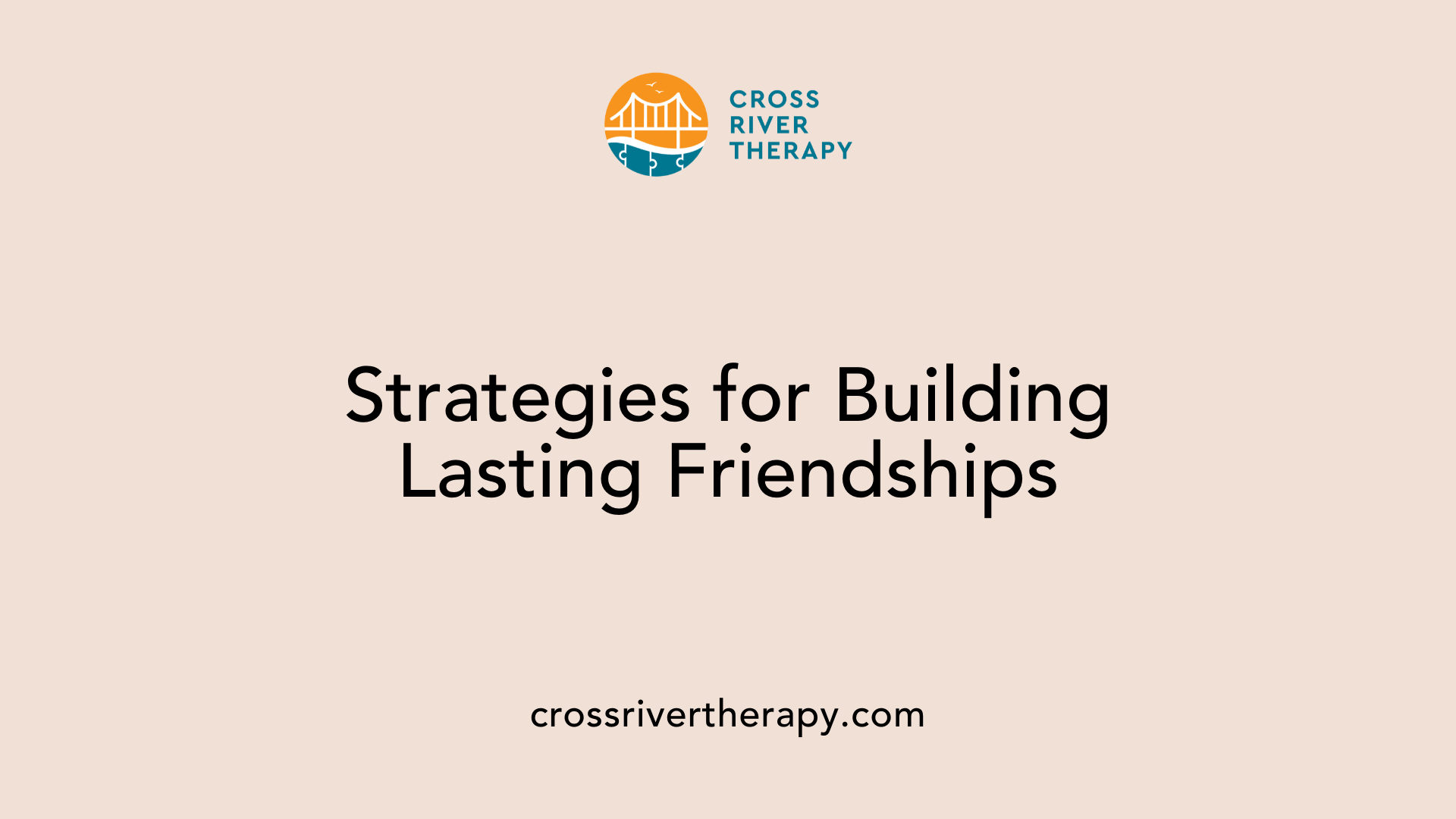
How can autistic adults make friends?
Making friends can be a daunting task for autistic adults, largely due to factors like social anxiety and the unpredictability of social interactions. However, there are effective strategies that can facilitate this process.
Managing Social Anxiety
One of the primary challenges is managing social anxiety. Practicing techniques such as assuming positive intent from those around you can help alleviate fear. Autistic adults can also benefit significantly from embracing vulnerability. While stepping out of one's comfort zone involves some level of risk, it can also lead to more genuine connections.
Setting Realistic Expectations
Setting realistic expectations is crucial when pursuing friendships. It’s important to remember that not every interaction will lead to a lasting relationship, and understanding this can reduce disappointment. This mindset allows individuals to take a relaxed approach when meeting new people.
Engaging with Shared Interests
Engaging in activities that align with personal interests is another effective way to initiate conversations. Finding communities—whether online or offline—that resonate with your hobbies sets the stage for comfortable small talk.
Mindfulness in Conversations
Practicing mindfulness can contribute to feeling at ease in social situations. Staying present allows autistic individuals to focus better on interactions.
Open-ended questions can also enhance dialogues, as they encourage a flow of conversation, while validation—offering respect and recognition of others’ feelings—can deepen connections and help avoid misunderstandings.
By employing these strategies, autistic adults can significantly improve their chances of forming and maintaining meaningful friendships.
Developing Essential Social Skills
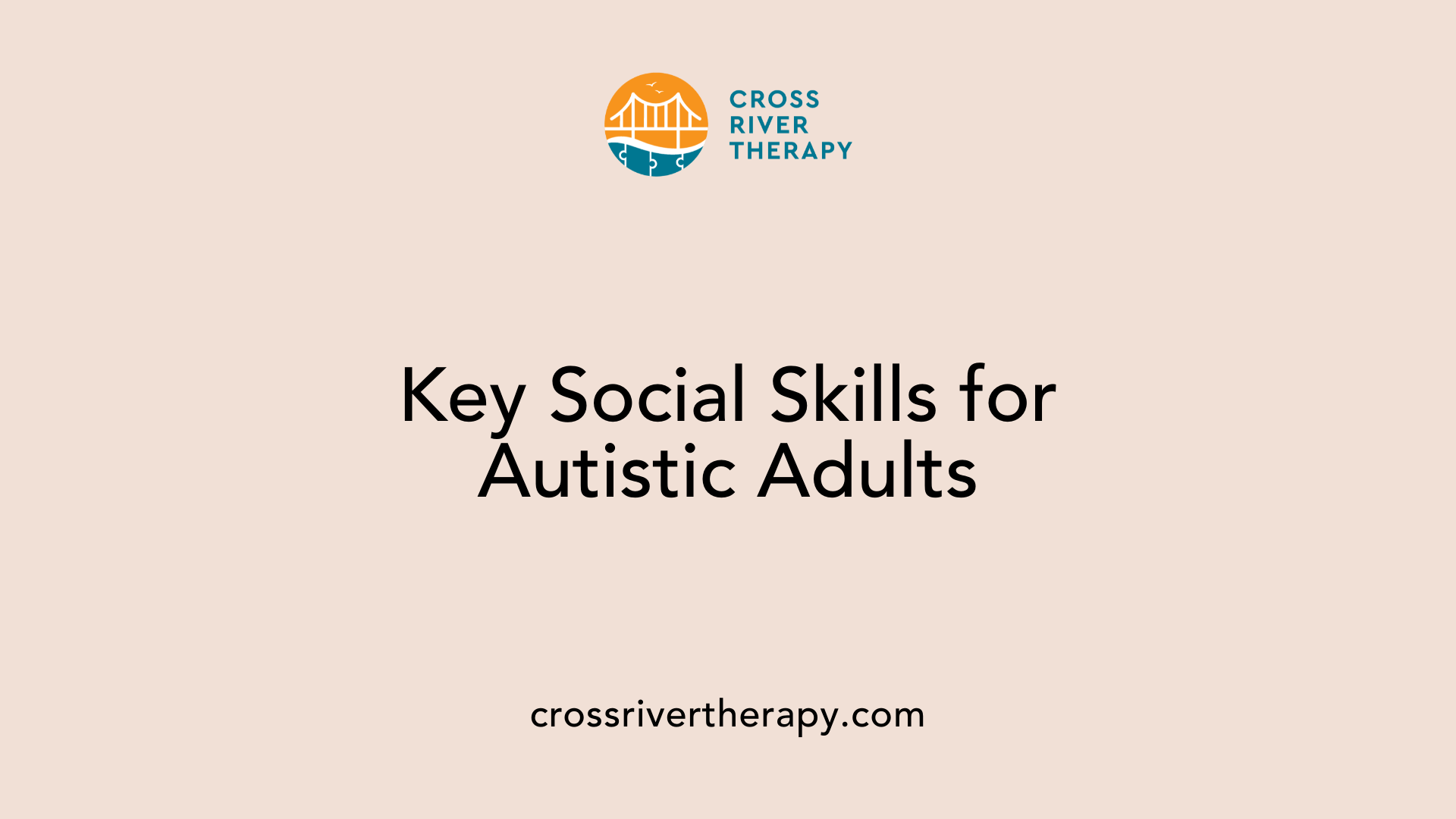
What social skills can autistic adults develop to improve interactions?
Autistic adults can improve their social skills by focusing on their individual strengths and understanding the impact of negative labels. Recognizing personal skills not only boosts confidence but also encourages authentic interactions. Here are some important strategies:
- Speak Clearly and Literally: Avoid using sarcasm, idioms, or nuanced phrases that might confuse.
- Choose Comfortable Environments: Engage in familiar and quiet places to minimize distractions.
- Establish Trust and Patience: Building relationships takes time. Show patience and allow for processing time during conversations.
- Use Structured Communication: Implementing social scripts or visual aids can help convey messages more effectively and create clarity in interactions.
Practicing these approaches in daily interactions fosters a more open and respectful communication style, enhancing relationships and reducing social anxiety.
How can understanding one’s strengths help in communication?
Leveraging personal strengths allows autistic individuals to express themselves more confidently. For example, if someone excels in a particular hobby or subject, they can use that as a conversation starter to engage with others. This not only sets a comfortable tone but also makes the interaction feel more natural.
Why is it important to create a sense of security in social interactions?
A sense of security is crucial in fostering meaningful relationships. When autistic individuals feel supported and respected, they are more likely to engage fully in conversations. Providing clear directions and encouraging mutual understanding can lead to a more positive and thriving social network.
Enhancing Conversation Skills
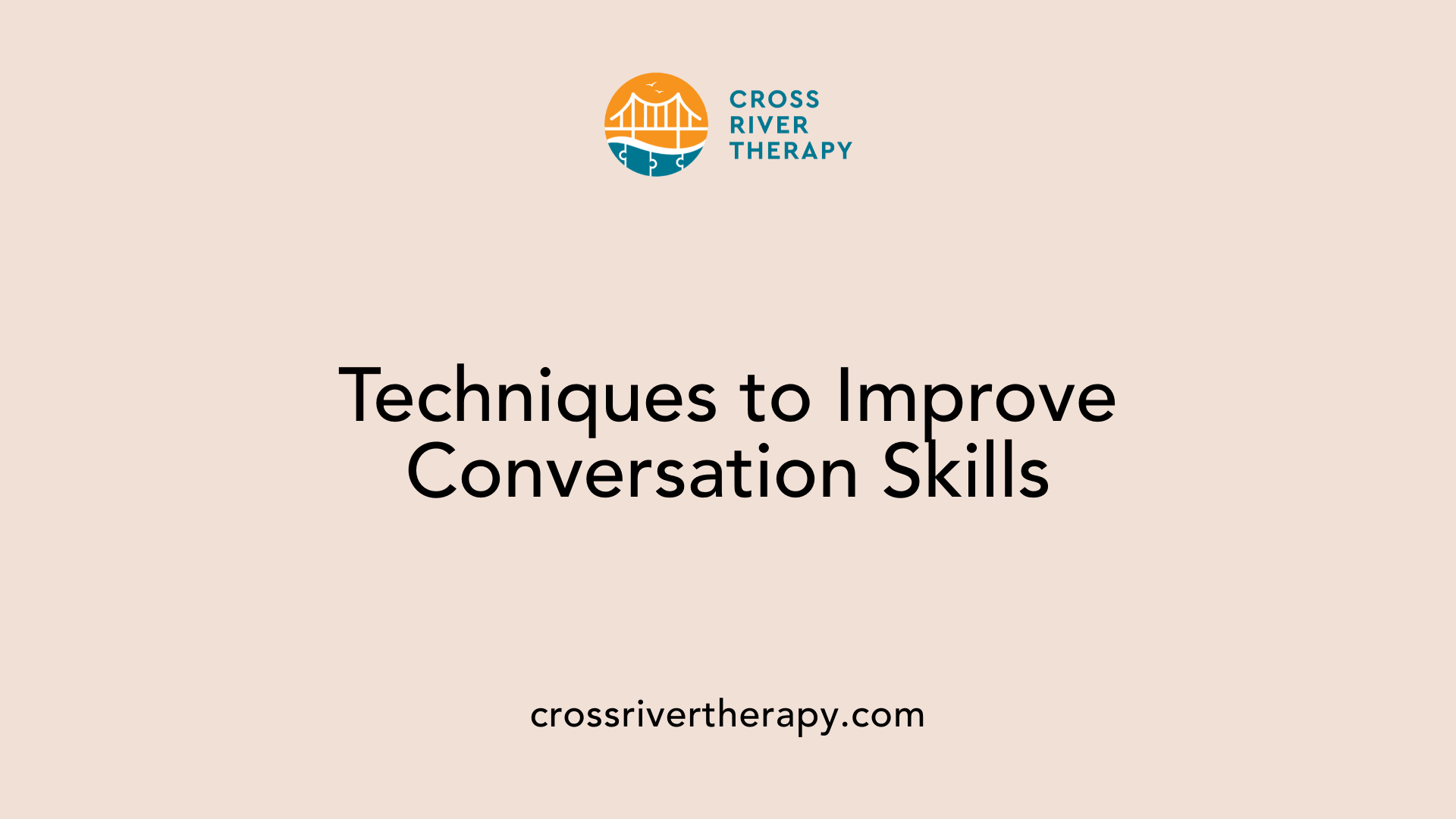
How can autistic adults improve their conversation skills?
Autistic adults can enhance their conversation skills through various effective strategies. One key approach is participating in social skills groups. These structured environments offer opportunities for practicing interactions with peers in a supportive setting.
The role of visual aids
Utilizing visual aids, such as personalized teaching stories and diagrams, can significantly reduce anxiety in social situations. These tools make social norms and expectations clearer, helping individuals remember and apply what they’ve learned in real-time.
Practicing empathy
Practicing empathy can also foster better communication. Engaging in role-playing exercises allows autistic individuals to experience different perspectives, encouraging the development of reciprocity in conversations.
Feedback and reinforcement
Moreover, providing constructive feedback is crucial. It allows individuals to refine their communication styles while specific praise for positive behaviors reinforces those successful interactions, leading to increased confidence.
Summary of strategies for conversation improvement
| Strategy | Description | Benefits |
|---|---|---|
| Social skills groups | Practice interactions with peers | Provides a safe space for learning |
| Visual aids | Tools to clarify social expectations | Reduces anxiety and aids memory |
| Empathy exercises | Role-playing to understand different perspectives | Encourages reciprocal communication |
| Constructive feedback | Guidance on improving specific social skills | Increases confidence and skill refinement |
Finding Happiness in Social Contexts
What makes autistic adults happy in social contexts?
Autistic adults find happiness in social contexts primarily through a strong sense of connection and community. These aspects are pivotal in combating feelings of isolation and enhancing self-worth. By engaging in activities that promote self-awareness and resilience—such as recognizing their own strengths and interests—autistic individuals can significantly boost their happiness levels.
How can managing criticism impact happiness?
The ability to navigate criticism effectively is integral to emotional well-being. Autistic adults benefit from learning to discern between constructive and destructive feedback. Developing healthy coping strategies empowers them to handle social interactions with confidence, thus reducing anxiety and fostering a positive outlook.
Why is self-acceptance important?
A supportive environment that emphasizes self-acceptance and positive self-talk plays a crucial role in promoting happiness. Encouraging autistic individuals to embrace their unique traits and characteristics enables them to form meaningful relationships, enhancing their social experiences. Ultimately, fostering community connections and encouraging self-acceptance are vital for enriching the social lives of autistic adults.
| Topic | Action Steps | Benefits |
|---|---|---|
| Building Community Connections | Join groups with shared interests | Reduces isolation, enhances self-esteem |
| Managing Criticism | Practice discernment on feedback | Improves emotional resilience |
| Encouraging Self-Acceptance | Engage in positive self-talk | Promotes healthier relationships and happiness |
Real-world Social Interactions
What are some examples of social interactions for autistic adults?
Social interactions for autistic adults can take various forms, particularly those designed to foster understanding and engagement in a supportive environment.
Structured Social Skills Groups: These groups offer a setting where individuals can practice communication and interaction skills with their peers. Participants engage in role-playing exercises to simulate real-world scenarios, which helps them gain confidence.
Alternative Communication Methods: Autistic individuals might prefer using written messages or visual aids for communication, especially in situations that feel overwhelming. This can ease the anxiety associated with verbal exchanges and provide clarity.
Understanding Personal Boundaries: Many autistic adults have specific comfort levels regarding physical touch and proximity. Respecting these boundaries is crucial for encouraging a feeling of safety and fostering trust in interactions.
Utilizing Mindfulness: Some adults may find it helpful to practice mindfulness techniques, allowing them to stay present in conversations. This approach helps manage anxiety and facilitates better engagement.
These methods, combined with supportive strategies, empower autistic adults to work on overcoming social challenges and build meaningful connections.
Embracing Vulnerability: The Key to Connection
Overcoming Fear of Vulnerability
For many autistic individuals, the prospect of opening up and being vulnerable is daunting. This emotional exposure can feel like a risk, fueled by fears of judgment or rejection in social spaces. It’s important to recognize that vulnerability is a natural part of forming connections. Gradual engagement can help ease these feelings. Start by sharing small, non-threatening personal stories or interests in safe environments. This can help build confidence in expressing oneself without overwhelming anxiety.
Assuming Positive Intent in Social Situations
Another important strategy is to assume positive intent during interactions. This mindset can dramatically shift perceptions of social situations, reducing anxiety and fear. When entering social engagements, remind yourself that not every action by others is intended to be judgmental or exclusive. Instead, focus on the possibility of genuine, friendly interactions. Practicing mindfulness can also support this approach, helping individuals remain present and engaged in conversations rather than fixating on fears of inadequacy. These techniques collectively foster deeper connections, encourage friendships, and markedly reduce feelings of isolation.
Role-playing and Real-life Practice
Practicing in Safe Environments
Role-playing serves as an effective tool for autistic adults to practice social interactions in a controlled and safe setting. This method allows them to experiment with different social skills without the pressure of real-life situations. By simulating conversations or social scenarios, individuals can build their confidence in initiating dialogues, responding to questions, and maintaining conversations.
Modeling Real-life Scenarios
Social skills training often incorporates modeling real-life scenarios where individuals can witness appropriate social behaviors in action. These exercises not only demonstrate effective communication methods but also highlight how to read social cues, handle conflicts, and navigate complex social settings. Role-playing can involve peers or professionals who provide constructive feedback, which is invaluable in refining their abilities.
| Key Aspects of Role-playing | Description | Benefits |
|---|---|---|
| Safe Practice Environment | Simulated scenarios to reduce anxiety in learning | Builds confidence and reduces social anxiety |
| Realistic Feedback | Constructive criticism from peers and professionals | Helps refine social skills and improve interactions |
| Varied Scenarios | Exposure to diverse social situations | Enhances adaptability and understanding of social dynamics |
Engaging in role-playing not only improves social skills but also fosters a sense of community among participants, facilitating lasting friendships as individuals learn how to interact with one another meaningfully.
Combatting Social Isolation
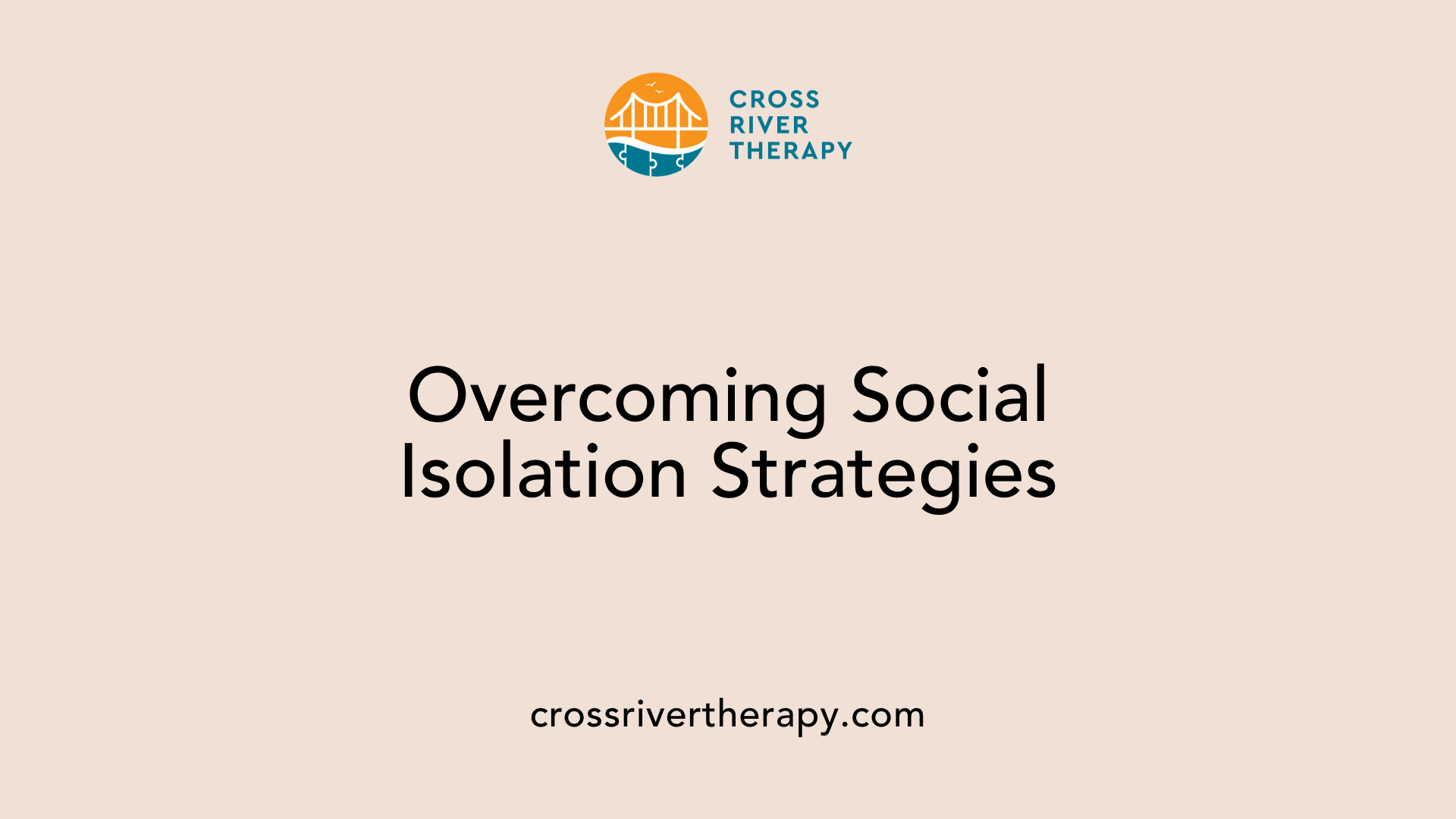
Scheduling Social Activities
To effectively address social isolation, autistic adults can benefit significantly from planning and scheduling social interactions. Setting specific times to meet with friends or family creates a framework for engaging with others, transforming spontaneous meetings into anticipated events. This proactive approach not only reduces anxiety surrounding social gatherings but also fosters deeper relationships through consistent interaction.
Engaging in Interest-Based Groups
Joining groups centered around shared interests is another practical strategy. Autistic individuals often find it easier to connect with others when the focus is on mutual hobbies or passions. Community groups, online forums, or local meetups can provide a comfortable environment that encourages natural conversation and friendship formation.
Summary of Strategies
| Strategy | Description | Benefits |
|---|---|---|
| Scheduling Social Activities | Plan specific times to meet friends or family. | Reduces anxiety and creates anticipation. |
| Joining Interest-Based Groups | Engage in communities focused on shared interests. | Encourages natural connections and conversations. |
Building Mutual Understanding in Relationships
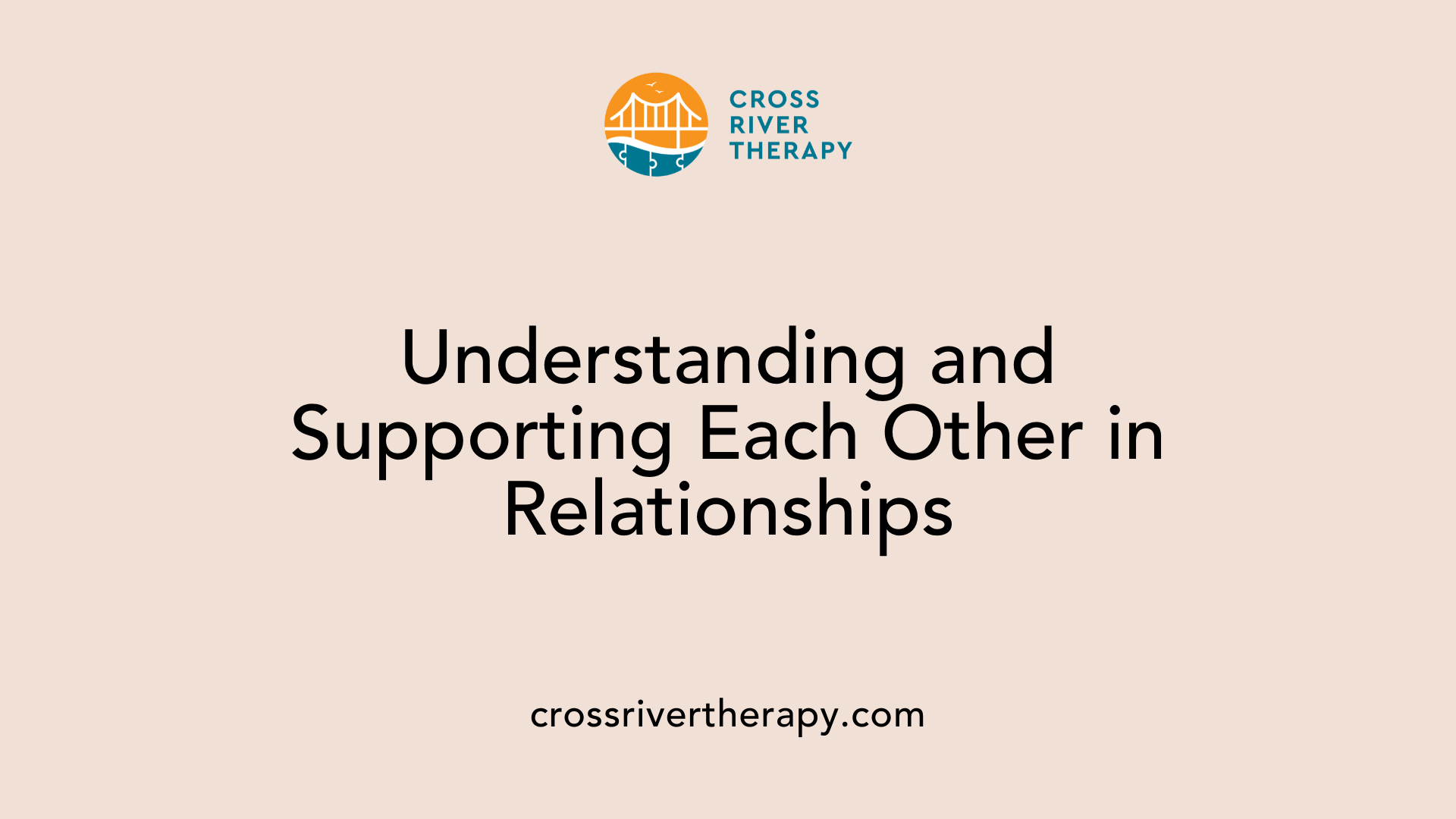
Creating Strong Connections with Partners
Building mutual understanding is essential for fostering strong connections among partners where one or both individuals are on the autism spectrum. Each partner may interpret situations differently, which can create misunderstandings. Patience and compassion are vital in these interactions. Taking time to truly listen and grasp each other's perspectives aids in cultivating stronger bonds.
It's crucial to consider each other's strengths and cater to them. When partners capitalize on what each brings to the relationship, they can better support one another in social situations. Regular check-ins and open discussions about feelings can help clarify expectations.
Communicating Effectively
Effective communication serves as the backbone of healthy relationships. Individuals on the spectrum thrive when given clear, literal instructions, avoiding slang and nuanced phrases that might be confusing. Active listening practice, where each person gives the other time to express thoughts thoroughly, can significantly enhance dialogue.
When navigating social cues, both partners should practice assuming positive intent, leading to a more secure environment. Using direct feedback regarding personal space and boundaries further establishes a respectful communication channel, ensuring that both partners feel understood and valued.
Incorporating visual supports, such as diagrams to represent social norms, can also assist in clarifying expectations. This strategic approach not only alleviates stress but encourages mutual respect and deeper connection.
Understanding and Respecting Autism
Addressing Others with Respect
When engaging with autistic individuals, it is essential to treat them with the same respect afforded to any adult. Addressing them directly, using their name, and avoiding overly familiar or diminutive terms such as "honey" or "sweetie" promotes dignity. Such labels can come off as condescending and may undermine their independence and social standing.
Avoiding Assumptions about Abilities
Autistic individuals possess a wide range of skills and cognitive abilities. It is crucial not to make sweeping assumptions about their capacity to understand or engage in conversation. Instead, foster healthy communication by using clear and literal language, steering clear of slang, sarcasm, or nuanced phrases, which could lead to confusion.
Additionally, active listening plays a vital role in fostering effective communication. Allowing time for responses shows respect for their processing needs and encourages a more inclusive dialogue. This mutual understanding can significantly enhance social interactions, making connections more meaningful and impactful.
Empowering Social Growth
Social interactions are vital to human connection and well-being. For autistic adults, the journey to developing these skills requires tailored strategies and a compassionate approach. By focusing on individual strengths, practicing communication skills, and fostering environments of respect and understanding, autistic individuals can enhance their social lives and build meaningful relationships. With ongoing support and a structured approach, autistic adults can navigate social landscapes with confidence and find joy in their interactions.
References
- Making friends - a guide for autistic adults - National Autistic Society
- Making Friends When You're On The Autism Spectrum - Tasha Oswald
- Tips for Talking to Adults on the Autism Spectrum - May Institute
- Autism social interaction strategies | The Spectrum
- Adult Autism and Relationships - HelpGuide.org
- Social skills and autism | Autism Speaks
- Interacting with Autistic People - Milestones Autism Resources
- Social Tips for Autistic Adults - Magnet ABA
- Making friends - National Autistic Society



